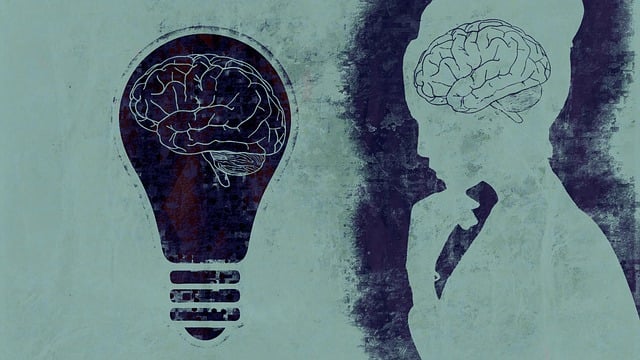Mindfulness meditation is an effective tool for managing postpartum depression (PPD) in Arvada, offering new mothers a proven strategy to observe and accept emotions without judgment. Regular practice enhances self-esteem and improves recovery through social skills training, support networks, and better communication. Creating a home meditation sanctuary supports daily mindfulness integration, stress management, and tranquility. Various techniques, from breath exercises to guided visualizations, promote mental wellness and compassion. Incorporating mindfulness into routines strengthens resilience and enables individuals to navigate challenges with calm, ultimately supporting long-term mental wellness, as highlighted by Arvada PPD therapy.
“Unwind and reconnect with yourself through the transformative power of mindfulness meditation, especially tailored for managing postpartum depression in Arvada. This comprehensive guide offers a holistic approach to mental well-being, guiding you through the process from understanding its benefits to creating a dedicated practice space.
Learn practical techniques and exercises to calm your mind daily, and discover strategies to seamlessly integrate mindfulness into your routine for lasting support. Embrace a new sense of balance and resilience.”
- Understanding Mindfulness Meditation for Postpartum Depression
- Setting Up Your Mindfulness Practice Space
- Techniques and Exercises for Daily Meditation
- Integrating Mindfulness into Daily Life for Long-Term Support
Understanding Mindfulness Meditation for Postpartum Depression

Mindfulness meditation has emerged as a powerful tool to combat postpartum depression (PPD), a common yet challenging mental health issue among new mothers in Arvada and beyond. This ancient practice focuses on training the mind to be fully present, acknowledging and accepting each moment as it is, without judgment. For mothers dealing with PPD, this can mean cultivating awareness of overwhelming emotions, intrusive thoughts, and physical sensations associated with the condition.
By incorporating mindfulness meditation into their daily routines, Arvada postpartum depression therapy participants can learn to observe their thoughts and feelings without reacting impulsively. This self-awareness fosters a sense of detachment from negative thought patterns, helping to reduce symptoms of anxiety and depression. Moreover, regular practice can contribute to self-esteem improvement by encouraging a kinder inner dialogue and promoting a deeper connection with one’s body and emotions. Mental health education programs designed around mindfulness often include social skills training, fostering support networks and enhancing communication, which are crucial aspects of recovery.
Setting Up Your Mindfulness Practice Space

Creating a dedicated space for your mindfulness practice is a powerful step towards incorporating this ancient technique into your daily routine. Start by identifying a quiet area in your home where you can easily access and establish your meditation sanctuary. A cozy corner, perhaps near a window with soft natural light, can transform into a peaceful retreat. Consider adding elements that promote relaxation; a comfortable cushion or chair, some soothing scents like lavender, and soft music or nature sounds in the background can all contribute to an optimal environment.
This space should feel calming and inviting, allowing you to disconnect from external distractions and focus inward. For those dealing with postpartum depression in Arvada, establishing such a practice area can be especially beneficial for managing stress, anxiety, and fostering self-care routines. Remember, it’s not just about the physical setup; it’s also about creating a mindset of tranquility and intention as you prepare to embark on your mindfulness journey, potentially through workshops or guided practices offered by organizations dedicated to burnout prevention and self-esteem improvement.
Techniques and Exercises for Daily Meditation

Meditation is a powerful tool to improve mental wellness and cultivate compassion within oneself, which can be especially beneficial for those recovering from postpartum depression. Techniques vary widely, but several exercises are particularly effective for daily practice. One popular method involves focusing on the breath, where individuals pay close attention to each inhalation and exhalation, allowing thoughts to come and go without judgment. This simple yet profound practice enhances mindfulness and promotes a sense of calm.
Additionally, guided visualizations and body scans can be powerful tools. Visualizing peaceful scenes or gently scanning through different parts of the body helps individuals connect with their senses and cultivate awareness. For those looking for a more active approach, gentle movements like yoga or tai chi, combined with mindful breathing, offer both physical and mental benefits. These practices not only support overall mental health but also serve as effective risk management planning for mental health professionals seeking to maintain their well-being in demanding careers, such as those involved in Arvada postpartum depression therapy.
Integrating Mindfulness into Daily Life for Long-Term Support

Integrating mindfulness into daily routines is key to long-term mental wellness support. It’s a powerful tool for managing stress and improving overall well-being, especially beneficial for those navigating postpartum depression, as Arvada Postpartum Depression Therapy attests. Simple practices like mindful breathing or body scans can be incorporated into morning routines or quiet moments throughout the day.
This consistent integration fosters inner strength development and coping skills, enabling individuals to face challenges with a calm and focused mindset. Just as a Mental Wellness Podcast Series Production might guide listeners on specific techniques, regular mindfulness practice allows for a deeper understanding of one’s thoughts and emotions, ultimately enhancing resilience and promoting long-lasting mental wellness.
Mindfulness meditation offers a powerful tool for managing postpartum depression in Arvada, providing a calming respite from the challenges new mothers face. By creating a dedicated practice space and employing various techniques, women can integrate mindfulness into their daily lives, fostering long-term emotional well-being. These practices not only support recovery but also enhance overall mental resilience, ensuring a brighter future for both mother and child.












